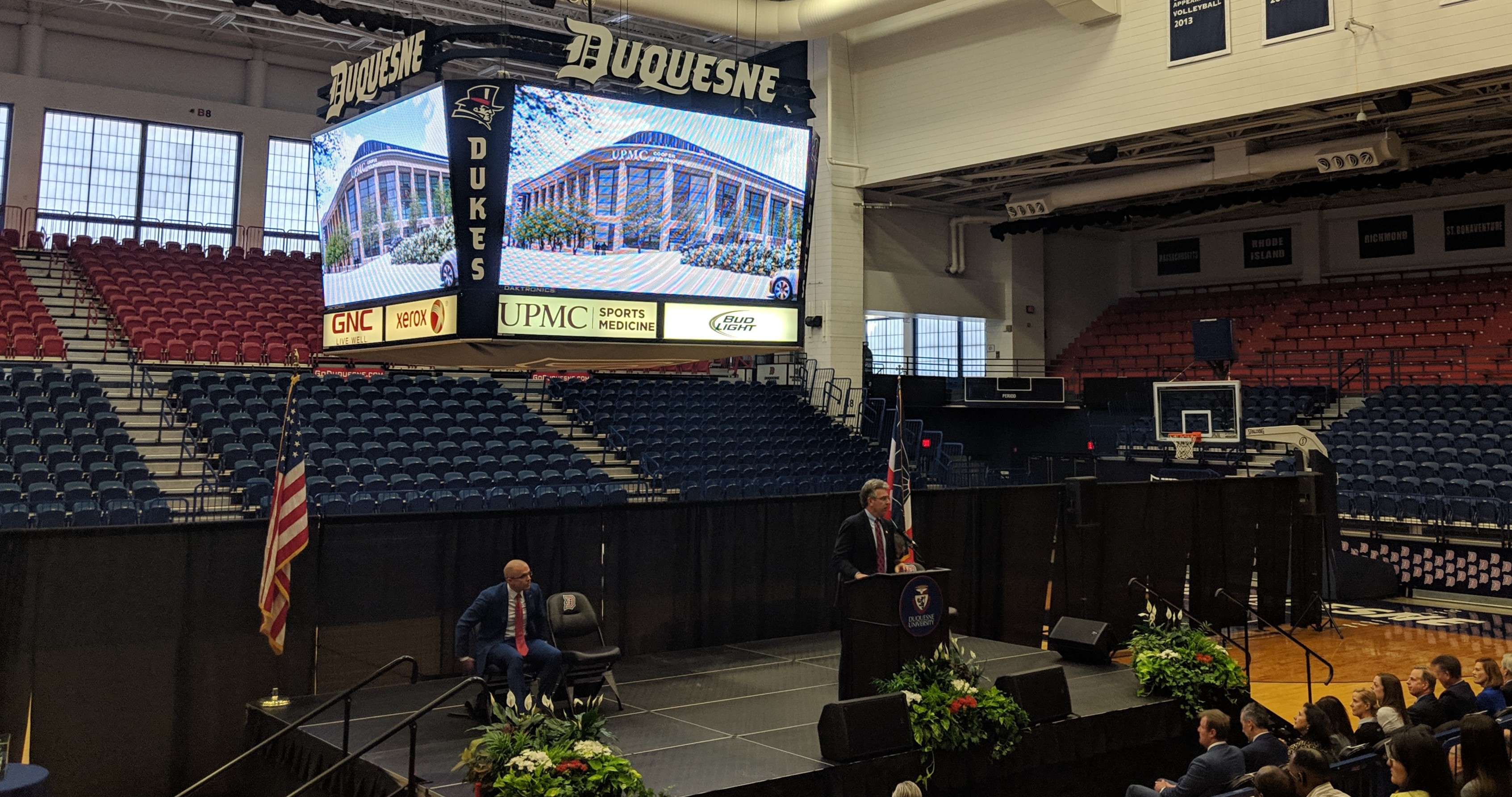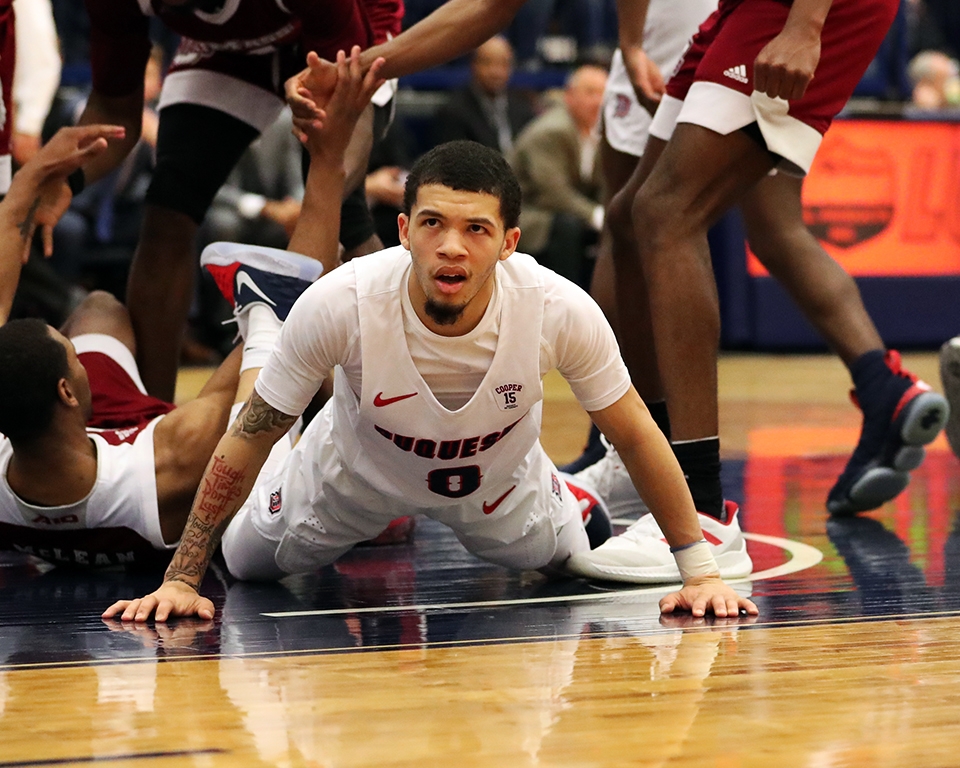
Notre Dame law professor Mary Ellen O’Connell speaks at the lecture in the Power Center Ballroom March 15. She outlined ethical and moral concerns with drones.
Brandon Addeo | News Editor
Does the use of armed aerial drones for targeted killings of suspected terrorists comply with law and ethics?
That was the topic of discussion at “Law, Ethics and the New Technology of War,” which took place March 15 in the Power Center Ballroom. The featured speaker was Mary Ellen O’Connell, a law professor at the University of Notre Dame.
Duquesne President Ken Gormley introduced the speaker as well as the topic at hand.
“When you think about it, it’s startling that people no longer have to engage on the field of battle,” Gormley said. “Missiles and drones can be controlled remotely from hundreds of miles away.”
O’Connell, who has researched the use of force in international law, said “a certain amount of passivity has crept in” for both the military and civilian populations on the use of drone strikes. She criticized the use of drones
“With the use of the drone and high-tech spinoffs, we have reached a point of true moral nadir,” she said.
O’Connell cited the recent raid in Yemen by U.S. and allied forces as an example of unethical military practice.
The Jan. 28 nighttime raid by Navy SEALs and soldiers from the United Arab Emirates left several dozen dead, including one American soldier, according to Reuters. The U.S. military acknowledged that there were “likely” Yemeni civilians among the casualties.
O’Connell also pointed to instances of targeted killings via drone strike undertaken by the administrations of Presidents Bush and Obama. While there are no exact statistics, O’Connell said that since drone strikes began under President Bush, over 5,000 people have been killed including close to 200 children. It is not known how many of those killed were enemy combatants, but according to estimates by the New America Foundation, a U.S. non-partisan think tank, 20 percent of people killed by drone strikes between 2004 and 2011 were civilians.
“We just accept it — the new normal,” O’Connell said.
She argued that theologians and ethicists have been “sidelined” in the past decade in regard to drone strikes. She added Christian doctrine only condones violence in cases of self-defense.
Robert George, a professor and Catholic legal scholar at Princeton University, argued against drone strikes in a 2013 article in the Catholic News Agency.
“The wholesale and indiscriminate use of drones cannot be justified, and should be criticized,” he added. “This is something that Catholic intellectuals across the spectrum ought, it seems to me, to agree about.”
Supporters of the use of drone strikes cite the safety benefits of being able to attack from afar without endangering ground troops.
O’Connell offered an alternate view: the military must “re-establish the battlefield” and adhere to human rights law.
Liza Zulick contributed reporting.



